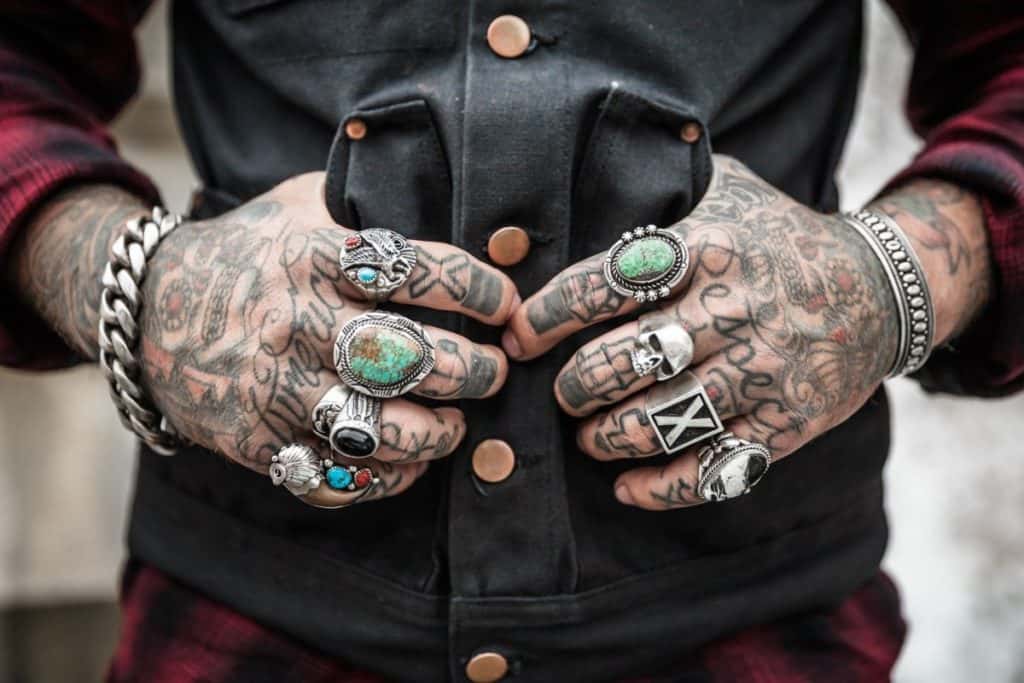
Introduction on Getting a Tattoo
As tattoos have become more widespread, researchers have studied their consequences on wellbeing. This body art may appear cooling, but it can be a risk. Some people react poorly to inks – substances that should not last either in the body.
Other people may have trouble getting some medical tests after getting a tattoo. And not everyone is as caring as Annabelle Townsend when choosing their design. Many people receive whim mascara – and later want to remove this permanent piece. It works, but it is a long and painful process.
Still, research shows that tattoos are not bad for everyone. For people who heal well, tattooing can prepare their immune system to fight germs – in the right way.
Rubbing
Until someone gets a tattoo, there is no way to know if it will be someone who will benefit or will be hurt instead.
Getting tattoos on skin: Who, When and How to get a tattoo?
If you hate shooting, tattoos are not for you. When someone gets a tattoo, the needle injects the ink into the skin, repeatedly.
When the tattoo makes correctly, the ink ends in the dermis. This layer of skin lies under the epidermis, the outer layer we see. The epidermis always develops new skin cells and sheds old ones. If tattoo ink place there, it would have last about a month before it disappears.
However, dermis cells do not replace in the same way. That is why this thick layer of skin is ideal for installing a fixed image. The dermis is also home to nerve endings so you can feel the prick of each needle. Oops! Finally, this part of the skin receives blood supply to the area. So things can go wrong when the ink injects into the dermis.
Usually, the body’s immune cells respond to puncture and ink injection. Getting a tattoo means placing foreign materials into the body — the immune system response by removing them, or at least trying. However, the tattoo ink particles are too big for these cells to handle. This makes the tattoo a permanent work of body art.
Tattoos ink cons: What are the side-effects of tattoos?
Organic chemicals contain carbon, but inorganic are not. Tattoo inks can be inorganic or organic, notes Dr. Tina Alster. He is a dermatologist or skin specialist at Georgetown University Medical Center in Washington.
He also heads the Washington Institute of Dermatologic Laser Surgery. Inorganic inks are making of minerals, salts or metal oxides found in nature. (Metal oxides are molecules containing oxygen and metal atoms.)
Inorganic inks can be yellow, black, red, blue, or white. Organic colors contain a lot of carbon and hydrogen atoms. Those used in tattoo ink are synthetic, which means manufacturing. Organic inks have a much more extensive range of colors than inorganic ones.
Tattoo inks are intended for injection into the skin. However, the pigments that use in these inks color are creating from printer inks or car paints. The (FDA) Food and Drug Administration sets out rules on colors that can be added to cosmetics, food, and drugs.
Although the FDA can regulate tattoo inks, it has not yet done so. The ink is currently not approved for use inside human skin.
However, the FDA is investigating the effect of tattoo inks on health. Reason? More and more people are reporting harmful reactions to them. Some tattoos make a person’s skin delicate and itchy.
It usually causes an allergic reaction to some components of colored paints, such as chromium or cobalt. People say red and yellow inks most likely to cause such reactions. However, green and blue can also cause reactions.
In some people, the skin around the tattoo may become uneven or flaky. “It is also caused by inflammation and irritation of tattoo inks.” Inflammation is a pain, swelling, and redness that can lead to the injury, “may even show infection.”
These reactions are not the only problems that can arise from a tattoo. Those created using metal inks can interfere with MRI scanning. Doctors diagnose scans to look inside the body. A powerful magnet on an MRI machine can heat metal in the tattoo ink.
Although this is usually not a problem, such heating can sometimes cause burns. Tattoos can also distort the image created by the machine. This does not mean that people with tattoos should avoid MRI if their doctors say they need them. However, they must tell doctors about tattoos.
Pros and Cons of Tattoos
Here are some dangers that body discoloration can cause. Recently, research has also revealed pleasant news. Most people do not have any tattoo problems. In them, discoloration of the tattoo can bring health benefits. The decolorization process can turn on the immune system, helping to keep such people healthy.
Such is the study of Christopher Lynn and his team from the University of Alabama in Tuscaloosa. Lynn is an anthropologist who studies the social habits of people. She was interested because tattoos could signal someone’s health to others.
Most people treat themselves smoothly. He notes that getting a tattoo is stressful. Also, it can be dangerous. People can become infected with unclean materials. They may suffer from allergic reactions. In cultures that use traditional tools to create large sizes, pain, and stress sometimes even lead to more dangerous for health.
Researchers also searched for levels of an immune protein called IgA. It is an abbreviation for immunoglobulin A. As Lynn notes, IgA is an essential defender against germs such as the cold-causing virus.
IgA protein available in the digestive tract and upper respiratory tract of the body. His task is glomming for bacteria and other materials that the body wants to get rid of it. The presence of IgA means such invaders that the body’s immune cells know how to track them.





Comments
There are no comments for this story
Be the first to respond and start the conversation.